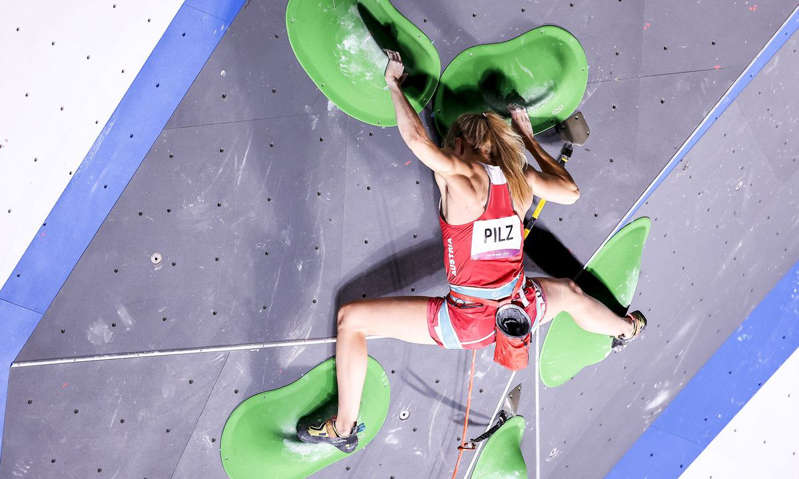Image: GEPA pictures / Jasmin Walter
In the end, the 24-year-old missed two holds in the lead to secure the medal. After the partial competitions in speed (6th) and bouldering (5th), she was seventh, in her leading discipline she came third. That resulted in a total of 90 points and seventh place. As expected, the gold medal went to Janja Garnbret from Slovenia (5 points).
The Japanese Miho Nonaka and Akiyo Noguchi landed in second and third place. At the start, Pilz was defeated by Japanese Akiyo Noguchi in the speed knockout competition, then defeated Seo Chaehyun from South Korea and had to admit defeat to Garnbret for fifth place. The fastest was Aleksandra Miroslaw with the new world record of 6.84 seconds.
The bouldering series was far too difficult for the athletes, only Garnbret managed a top on two of the three boulders. Pilz made it to two zones and was seventh before her parade discipline, but still in the medal race. In the lead up to the last athlete, the South Korean Seo Chaehyun, she was in second place behind the gold medalist, which would have been enough for bronze. The Korean woman managed one more grip than the Lower Austrian.
“Fifth place in bouldering is not a dream, the starting position is not perfect. But she showed what she can do in qualifying. It is important to concentrate on yourself. She can rely on her lead performance”, Austria's coach Kilian Fischhuber said on ORF-TV before the decision.
This means that Austria's number of medals in these games remains level with Athens in 2004 at seven. So far, Anna Kiesenhofer (gold) in road cycling, judoka Michaela Polleres (silver) and Shamil Borchashvili (bronze) and Magdalena Lobnig in rowing, Lukas Weißhaidinger in discus throwing, Bettina Plank in karate and Jakob Schubert in climbing (bronze each) have medals won.

